The World Health Organization (WHO) has declared antimicrobial resistance (AMR) as one of the top ten global public health threats facing humanity. AMR occurs when bacteria, viruses, fungi, and parasites evolve and no longer respond to antibiotics, making treatment with drugs challenging. This increases the risk of disease spread, severe illness, and death in humans and animals.
Without effective antimicrobials i.e. medicines used to treat and prevent infections in humans, plants, and animals, the success of modern medicine in treating infections, including during major surgery and cancer chemotherapy, would also be at increased risk. For Nepal, there are the additional risks posed by a weaker health system, and poor infection prevention, and control mechanisms.
-september-2021.jpg?sfvrsn=7500c706_7&Status=Master)
A glimpse of the National SORT IT Course, Module III, using a hybrid approach (virtual and in-person sessions) in Nepal. Photo Credit: WHO Nepal
As a step towards addressing the threat of AMR, Nepal hosted the AMR Structured Operational Research and Training IniTiative (SORT IT) course, the first in the WHO South-East Asia Region, with support from the Ministry of Health and Population (MoHP). SORT IT is a global partnership coordinated by TDR - The Special Programme for Research and Training in Tropical Diseases, and various partners who support countries to build sustainable capacity to conduct and publish operational research and use the evidence for informed decision-making to improve public health. In Nepal, WHO, Country Office for Nepal, has been supporting the program financially and technically since the initiation of the program.
Notably, about 70% of SORT IT publications have reported an impact on policy and practice. Each of the 18 participants completed and published research studies in renowned peer-reviewed journals. Topics of these papers cover the overuse and misuse of antibiotics in various settings in hospitals and poultry farms, and multi-drug resistance for various infections. The research papers can be viewed and downloaded here and here.
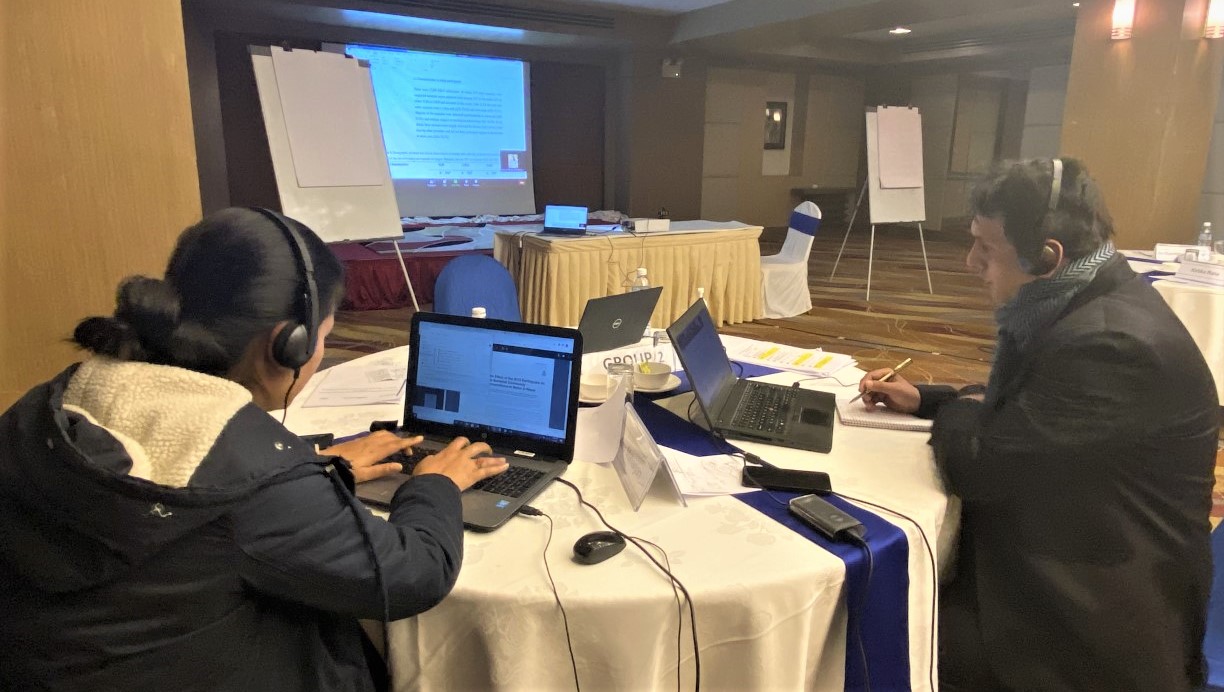
SORT IT participants discussing their manuscripts with mentors in Bagmati Province, Nepal. Photo Credit: WHO Nepal
These studies are short, easy-to-read documents that present scientific evidence and address the pertinent policy questions regarding AMR. The generated evidence will now advise health and care workers to improve health care delivery.
Participants included doctors, nurses, paramedical officers, and programme officers, often with little or no prior research experience, and received training while still conducting their research. The sessions took participants through the principles and practice of scientific writing, principles of writing scientific English, and other aspects with hands-on guidance provided by experienced mentors. Each participant used a relevant research project to master the practical skills of writing a study protocol, ensuring quality data gathering and analysis, publishing in a peer-reviewed journal, and using study findings to support evidence-based decision-making in public health.

Session on Data Capture and Analysis, Module II, National SORT IT Program, in Nepal. Photo Credit: WHO Nepal
“Capacity building has always been one of MoHP’s major focus, and this program has indeed developed the capacity to generate and promote data on the emergence, spread, and impact of AMR in Nepal”, stated Dr Madan Upadhyay, Chief, Quality Standard, and Regulation Division, MoHP.
SORT IT’s approach to AMR is also aligned with the strategic pillars of WHO’s Global Action Plan on AMR which include improving awareness, strengthening knowledge through surveillance and research, reducing the incidence of infection, optimizing the use of antimicrobials, and developing the economic case for sustainable investment.
“The studies will surely help us better understand the actual situation in Nepal; guide development of national strategies to tackle AMR with a One Health approach; and address the implementation research gaps in the critical area of containment,” said Dr Rajesh Sambhajirao Pandav, WHO Country Representative to Nepal. “The program, made possible through the support of the MoHP, will now make Nepal data-rich, information-rich, and action-rich.”
Few excerpts from the participants
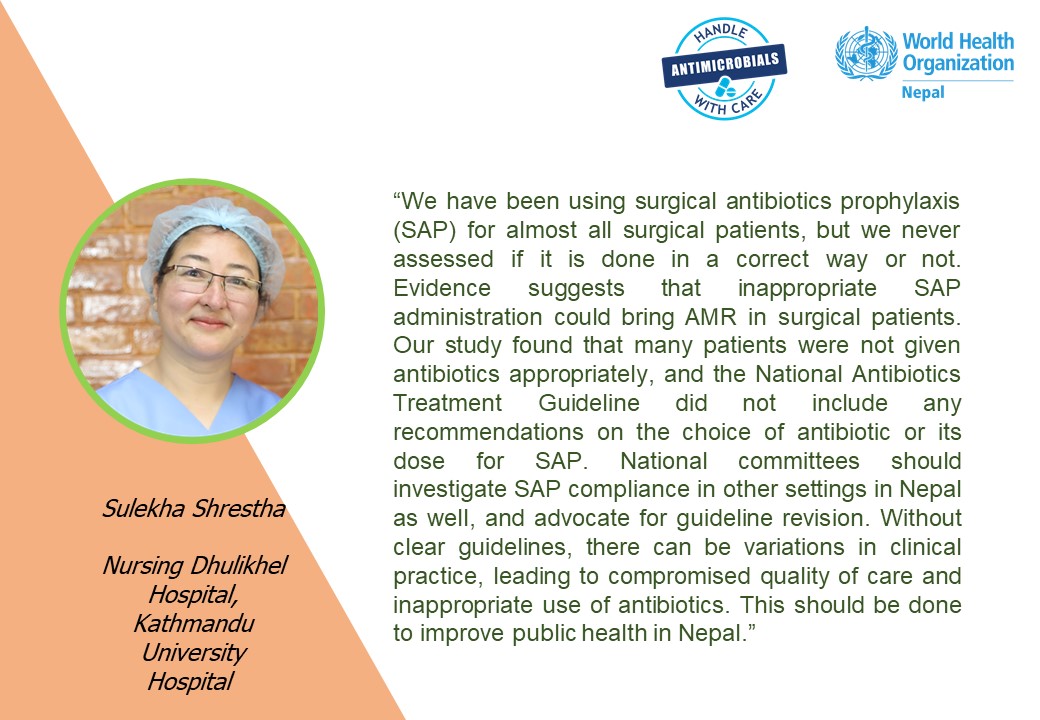
Sulekha Shrestha is a SORT IT Participant, and a Senior Nursing Supervisor/Associate Professor in Nursing Dhulikhel Hospital, Kathmandu University Hospital
Sulekha’s research - Good compliance with surgical antibiotic prophylaxis, but more to be done, in a referral hospital in Nepal - can be read here.
**
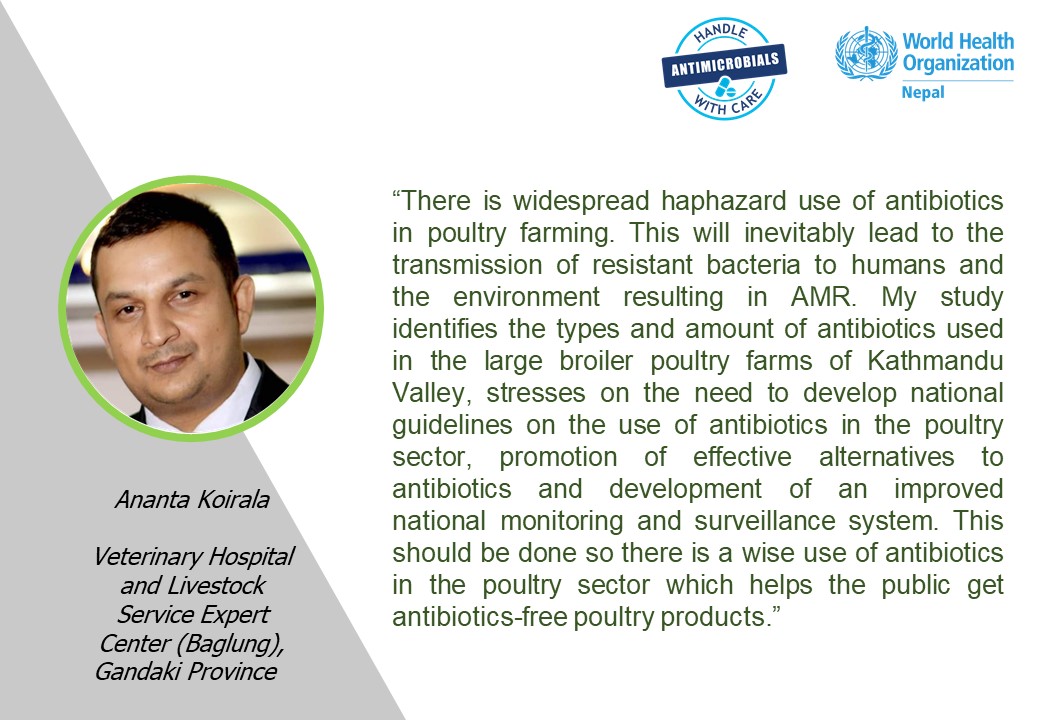
Ananta Koirala is a SORT IT Participant, and a Veterinary Doctor at the Veterinary Hospital and Livestock Service Expert Center (Baglung), Directorate of Livestock and Fisheries, Ministry of Land Reform, Agriculture Cooperatives and Poverty Alleviation, Gandaki Province, Nepal
Anant’s research - High Antibiotic Use in Poultry Farms in the Kathmandu Valley of Nepal: High Time for National Guidelines - can be read here.
**
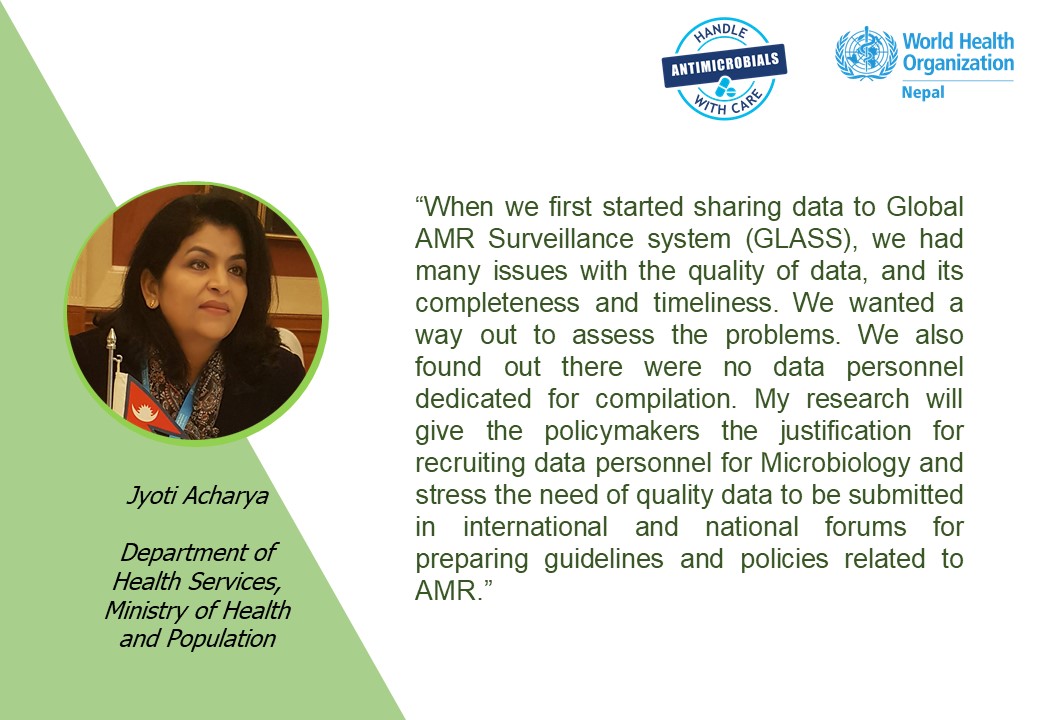
Jyoti Acharya is a SORT IT Participant; the Member-secretary of Human Health AMR Working Group; and the Chief Medical Laboratory Technologist, Department of Health Services, Ministry of Health and Population, Nepal
Jyoti’s research - Improving Antimicrobial Resistance Surveillance in Nepal – can be read here.
**
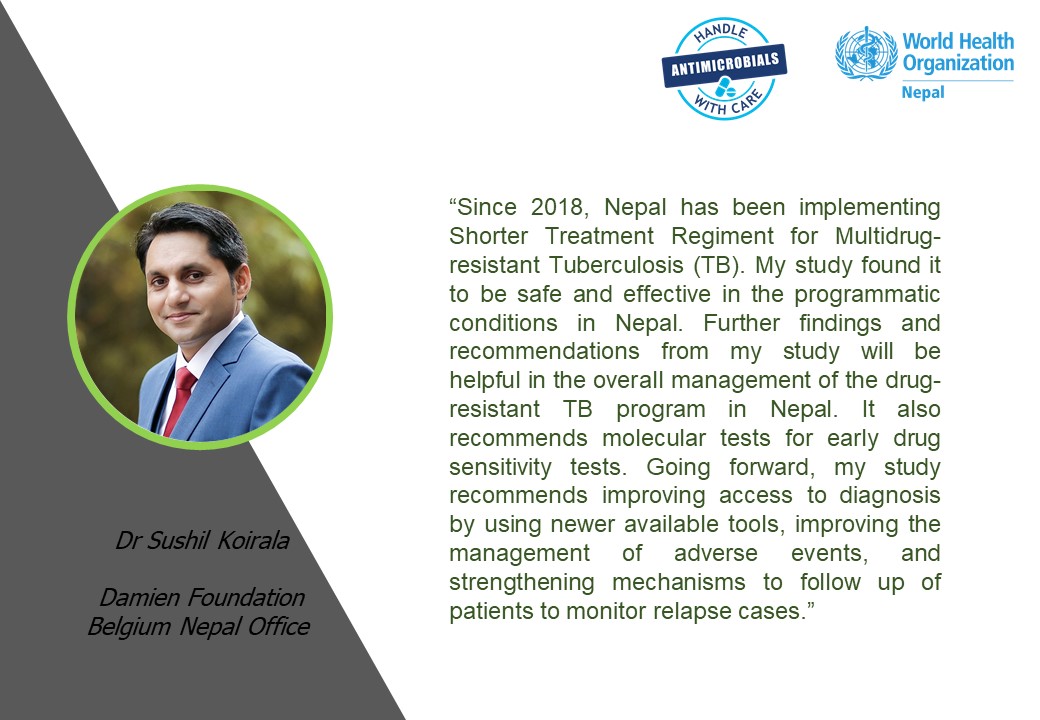
Dr Sushil Koirala is a SORT IT Participant and the Country Representative of Damien Foundation Belgium Nepal Office
Dr Sushil’s research - High success with shorter treatment for multidrugresistant tuberculosis patients in Nepal – can be read here.
**
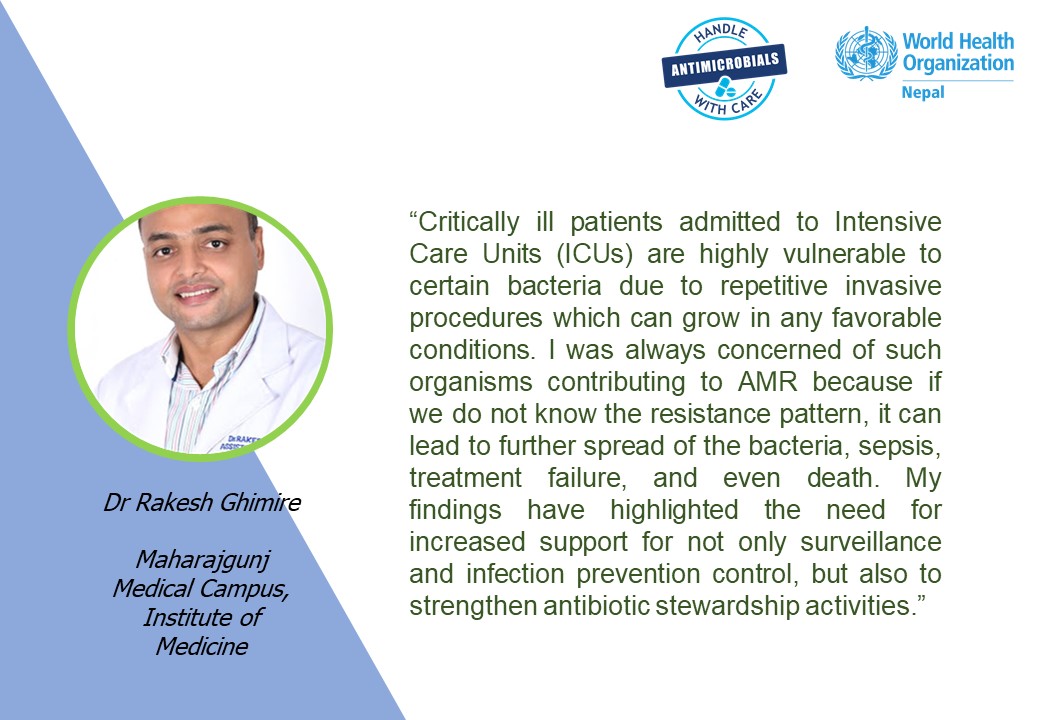
Dr Rakesh Ghimire is a SORT IT Participant, and the Assistant Professor at the Department of Clinical Pharmacology, Maharajgunj Medical Campus, Institute of Medicine (IOM), Tribhuvan University Teaching Hospital.
Dr Rakesh’s research - High drug resistance to PABS in sputum samples from an intensive care unit in Nepal - can be read here.
